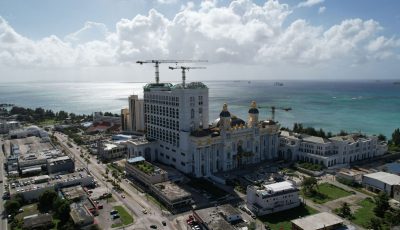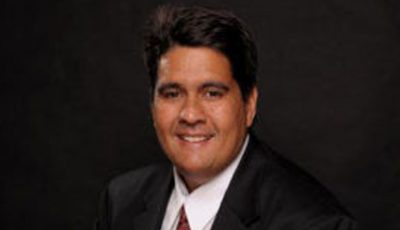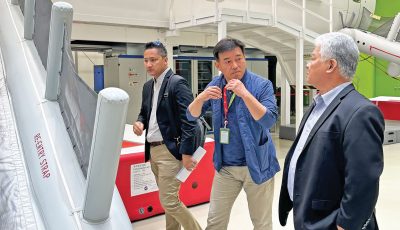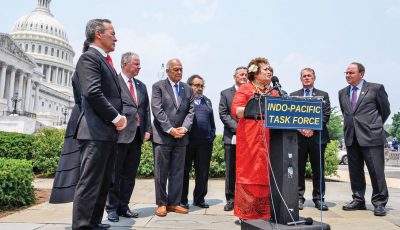China cracks down on corruption
Just as we applaud casino here with suspect standing ovation, a recent article in the Wall Street Journal Asian edition by Kate O’Keefe says that Macau saw its gambling revenue fall for the second-consecutive month in July. O’Keeffe tells WSJ’s Jake Lee why some of China’s high rollers are holding their cards close, and their cash even closer. Here goes:
“HONG KONG—Beijing’s intensifying crackdown on corruption is hitting two of the playgrounds of China’s elite: the VIP rooms at Macau casinos and luxury shopping malls in Hong Kong.
“Casino revenue in the world’s gambling capital fell for a second-straight month in July, dropping 3.6 percent from a year earlier as high rollers from mainland China stayed away from the tables in Macau. In Hong Kong, sales of jewelry, watches and other luxury items dropped 28 percent in June, marking a fifth-straight monthly decline.
“The retreat in Macau has been driven by the same VIP gamblers that powered the city’s rise to the top in recent years. Revenue from these gamblers, typically rich Chinese who are brought to Macau by middlemen known as junkets, fell by between 14 percent and 18 percent in July, according to analysts at UBS. By contrast, in 2010 VIP revenue grew by 70 percent.
“Across the Pearl River Delta in Hong Kong, the wealthy mainlanders who have packed the city’s high-end stores have also been holding back. Sales of luxury goods fell by nearly a third in the second quarter, including a 40 percent plunge in April.
“Analysts and industry executives said the Chinese government’s fight against corruption is hitting both industries hard. With Beijing keeping a closer eye on conspicuous consumption and capital flight, being seen buying 10 diamond-encrusted watches or throwing millions at a baccarat game is not recommended.
“This anticorruption crackdown in China is much more widespread and deeper than the VIP community had anticipated and as a result there could be prolonged weakness in the market,” said Union Gaming Research analyst Grant Govertsen.
“The ongoing anticorruption campaign is placing considerable focus on the illicit transfer of Chinese funds overseas. Macau is a significant factor in this,” said Steve Vickers, a consultant who has investigated junkets and formerly led the Royal Hong Kong Police Criminal Intelligence Bureau.
“Previously junkets had been most visibly affected by the campaign in late 2012 when Chinese police detained backers of one of Macau’s then-largest junkets on suspicions they had ties to Bo Xi Lai, a prominent politician jailed in the crackdown. The crackdown has increased with Mr. Xi’s rise.
“All of a sudden the world is changing,” said one top casino executive who deals with junkets. “The central government is much more concerned about junkets getting out of line.” The situation is worrying both junket operators and their VIP customers, who “don’t want to be involved with people who could get them in trouble,” the person said.
“Macau, the only place in China where casino gambling is legal, has long relied on junkets to bring in high-spending gamblers from the mainland, issue them credit and collect players’ debts in exchange for commissions from casinos. The system took root because Beijing limits how much money Chinese can take out of the mainland and doesn’t consider gambling debts valid there.
“The poor performance in Macau’s VIP market has smacked casinos. The Macau units of Las Vegas Sands Corp. LVS -1.53 percent and Wynn Resorts Ltd. WYNN -1.48 percent both posted earnings last month that missed already-lowered analyst projections. The territory’s four other gambling operators, including a unit of MGM Resorts International, are likely to also post weak earnings, according to analyst forecasts.”
This isn’t to show animus on casino but a neutral article from WSJ Asian edition. It’s good to think through its implications. Sadly, we’ve used brawn over brain on an issue that should have been treated with due diligence.
Mind-boggling change…
Drastic change imposed by advances in information technology is both good and bad. It isn’t bad per se in that it requires use of the thoughtful process to sift through changes and how they have affected traditional family settings. The challenge is in resolving derailment of once rock solid family communications and interaction at home.
***
I never went back to good old faithful (IBM typewriter) since shifting to a computer laptop in the mid-’80s. The new equipment was and still is the tool of the future. It even knocked out sending mail the old fashioned way. You don’t have to go to the office to check you mail. You could do it from your iPhone! Surprising that even files of materials are sent via email! New tech stuff has also opened up a myriad of means for communications via what’s known as the social media.
The technological advances now provide Skype conferencing, though it beats common sense why government officials still travel (at our expense). It must be difficult parting with bad and wasteful habits, again, at our expense. Or could we blame it on the “aura” of self-importance, jetting across two oceans just to review proposals? Isn’t reading and reviewing documents comprised primarily of reading? Failure to understand it doesn’t prompt a trip abroad, does it? Email or Skype it, stupid!
It’s time taxpayers begin demanding complete accountability!
Voters know issues too!
With 29 legislators you’d expect some reasoned answers to resolving the deepening economic disaster at home. We get nothing but ear-to-ear smiles of disconnection and disengagement. You press for realistic answers and they start scurrying to the closest empty room nearby.
And Da Boys are good spouting that they support the economy, education, health and other issues of significance. Challenge them into educated discussions and they begin to grope for words while quickly scanning for the closest exit door. Did someone say policy making? OMG!



























